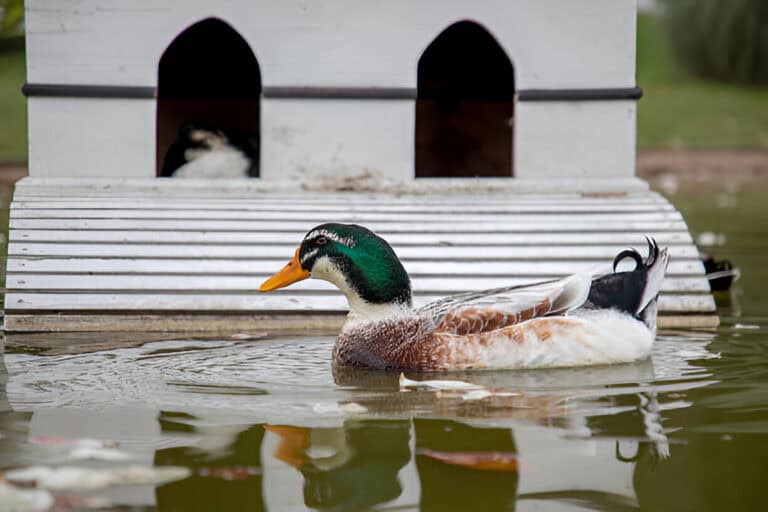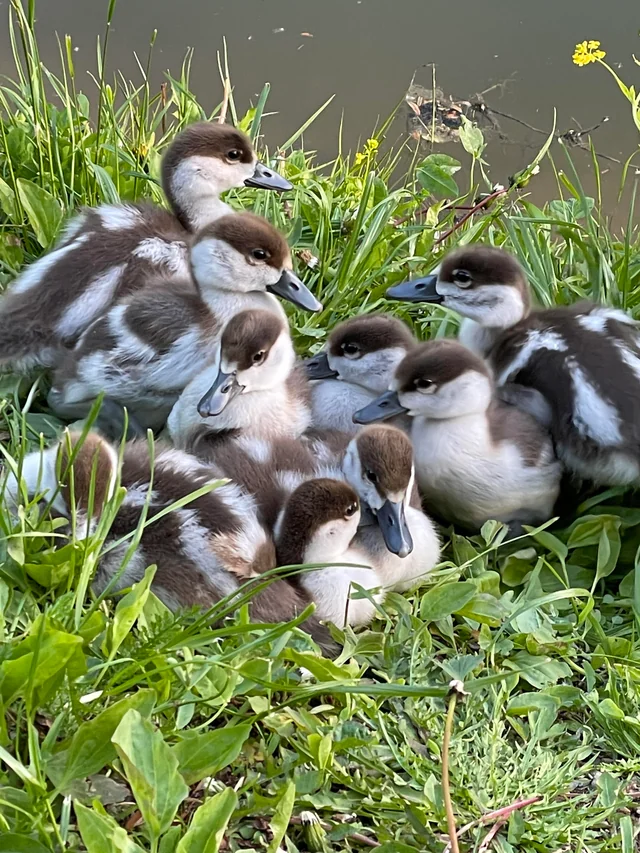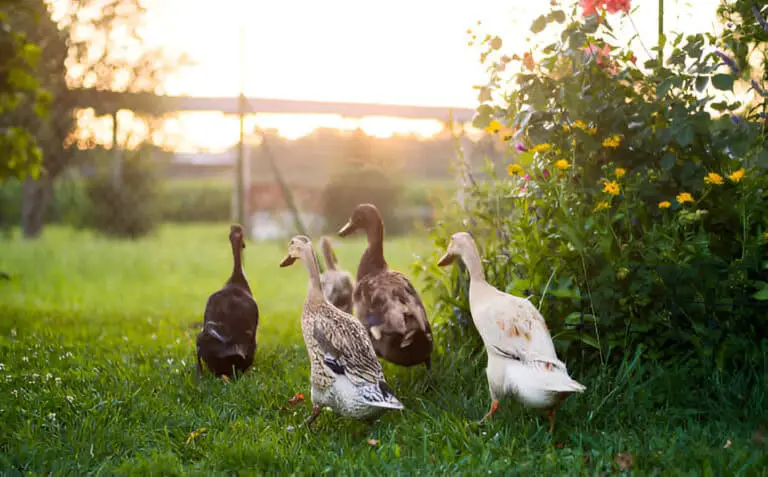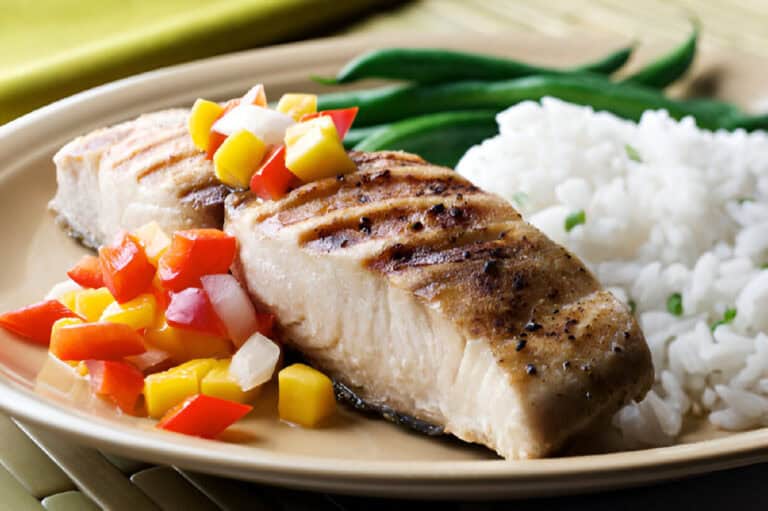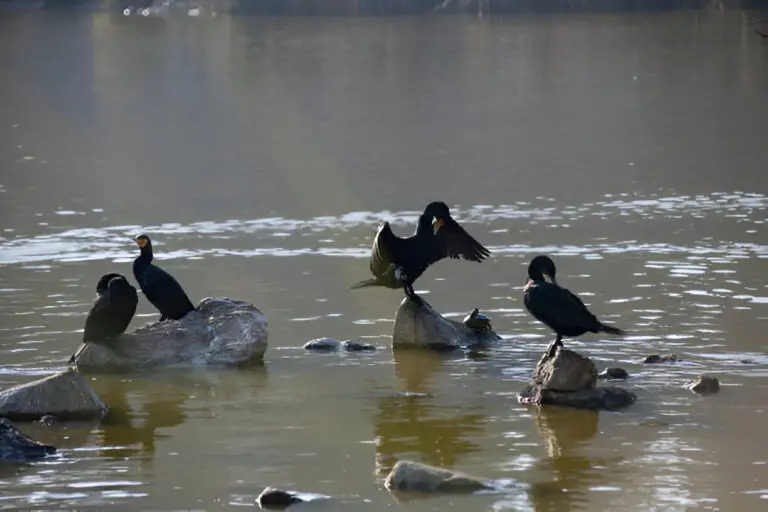What Does It Mean When A Duck Keeps Opening Its Mouth?
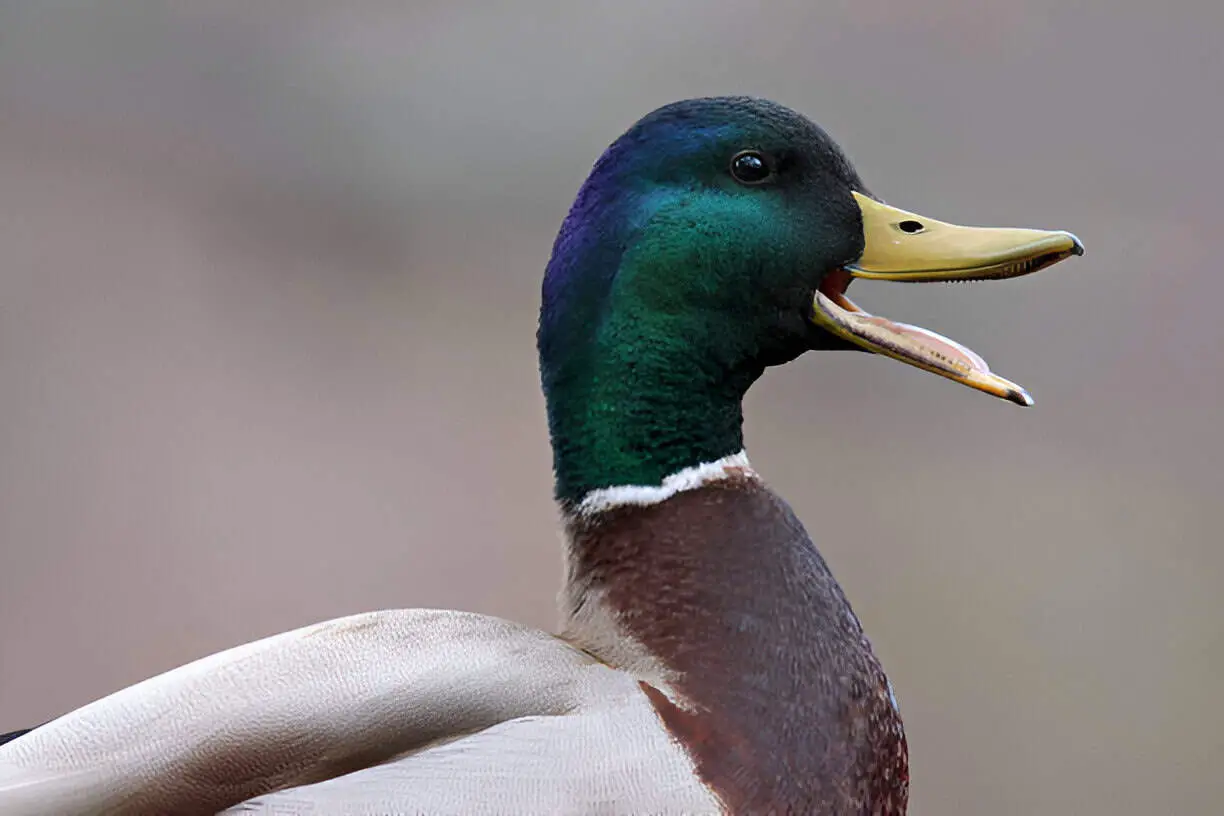
I still remember the first time I noticed one of my ducks repeatedly opening her mouth like she was silently quacking at invisible ghosts. At first, I laughed—figured she was just being dramatic. But after a few hours of this beak-gaping behavior, I started to worry. Was she hot? Choking? Trying to sing soprano in the duck choir?
Turns out, ducks opening their mouths without sound can mean a whole host of things. Some are innocent, like trying to cool off. Others ring alarm bells.
Let’s dig in, beak-first, and talk about what this behavior really means.
When Ducks Pant Like Dogs: Heat Stress
Ducks don’t sweat. So, when the mercury rises, they open their beaks and pant like little feathered dogs.
Signs It’s Heat-Related:
- Open mouth + fast breathing
- Wings lifted slightly from the body
- Sitting in the shade or near water
I live in a hot, humid climate, and in July, my whole flock starts to look like they’ve run a marathon. When ducks get overheated, their mouths open as they try to cool down through evaporation.
🔥 Heat Relief Tips:
| Tip | What To Do |
| Provide shade | Use tarps, umbrellas, or natural trees |
| Supply cool water | Offer fresh water often—more than usual |
| Frozen treats | Try frozen peas, grapes, or watermelon |
| Kiddie pool splash time | Give them a shallow pool to wade in |
If your duck cools down after some water and shade? You’re probably just dealing with heat stress. No big feathers ruffled.
Gape Worms: The Sneaky Culprit
Now here’s a less charming possibility—gape worms. These nasty parasites lodge themselves in a duck’s windpipe, causing them to constantly open their beak in discomfort.
I haven’t had to deal with gape worms (thank heavens), but friends of mine in wetter areas have seen it firsthand.
Signs It Could Be Gape Worm:
- Constant mouth opening or “gasping”
- Head shaking or neck stretching
- Weight loss or labored breathing
If you suspect this, you’ll need a vet visit. These little worms don’t go away on their own. A simple dewormer usually solves the problem, but timing is everything.
Something Stuck in the Throat?
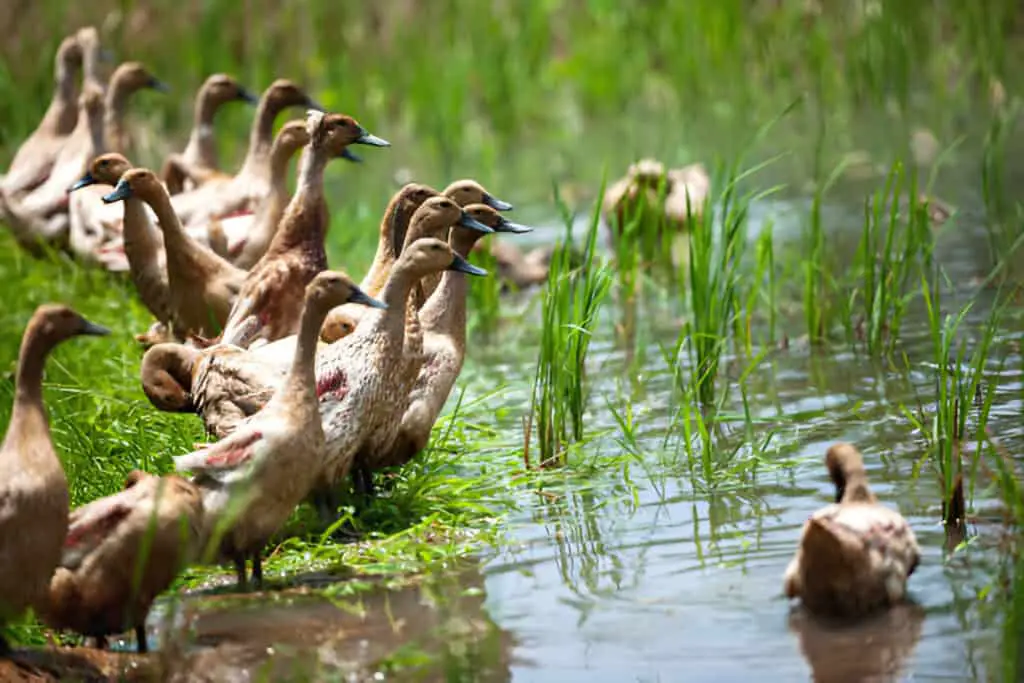
Ever eat too fast and get food caught halfway down? Ducks do the same thing. Sometimes they get bits of straw, food, or grit stuck in their mouth or throat and will open and close their beaks trying to dislodge it.
One of my juveniles once gulped down a long blade of grass and spent a good ten minutes looking like he was at an invisible dentist appointment—mouth wide open, tongue working overtime.
Quick Check:
- Offer some water—does it help?
- Gently open the beak and peek inside (if your duck allows it)
- Watch for drooling or foul-smelling breath (sign of infection)
Usually, they fix this on their own. But if it keeps happening, it might be time to adjust their diet or remove long stringy debris from their space.
Respiratory Infection? Not Always Obvious
Here’s where it gets tricky. Ducks are masters at hiding illness—an instinct from their wild ancestors. So subtle mouth-opening could be a respiratory infection.
Watch for These Clues:
- Wheezing or rattling noises
- Nasal discharge or bubbles
- Lethargy or less quacking than usual
I once had a Pekin girl who kept opening her mouth quietly while isolating herself from the flock. Turned out, she had a mild respiratory bug that cleared up with antibiotics and rest. I caught it early only because I paid close attention.
Communication and Body Language
Sometimes, ducks open their mouths to say, “Back off,” “Give me that snack,” or “Look, I’m the boss now.”
In a flock, especially when introducing new members, ducks open their mouths to:
- Threaten without biting
- Establish dominance
- Express discomfort
I’ve seen this especially during mating season or when food gets competitive.
List of Common Reasons Ducks Open Their Mouths
| Reason | Severity | Fix/Action |
| Cooling off | Low | Provide shade, cool water |
| Gape worms | High | Vet visit and deworming |
| Food or debris stuck | Medium | Watch closely; offer water |
| Respiratory illness | High | Isolate, monitor, and possibly medicate |
| Aggressive signaling | Low | Normal duck behavior |
| Overcrowding stress | Medium | Give them more space |
Stress & Overcrowding: Tight Quarters Cause Beak Drama
Ducks don’t like to be packed like sardines. If you’ve got too many birds per square foot, tempers flare, stress spikes, and weird behaviors—like excessive mouth opening—show up.
Duck Space Requirements (General Guideline):
| Type of Duck | Minimum Space Per Duck |
| Backyard/Pet Duck | 10–15 sq. ft. |
| Free-Range Duck | 5–10 sq. ft. |
| Confined Coop Ducks | 15–20 sq. ft. |
When I gave my flock more room to roam, their odd behaviors—including beak-gaping—toned way down.
Could It Be Just a Quirk?
Let’s not overlook this: some ducks are just weird.
I had one little Khaki Campbell who regularly opened her beak after drinking water, like she was trying to air-dry her tongue. Nothing wrong with her. Just a strange habit.
So if your duck seems healthy, eats and drinks well, quacks like the rest, and isn’t showing other symptoms—it might just be ducky eccentricity.
When Should You Worry?
If your duck opens its mouth for more than a few minutes and shows other signs (labored breathing, droopy wings, silent behavior), it’s time to dig deeper.
Call a Vet If:
- The mouth-gaping lasts longer than an hour
- You notice mucus or coughing
- The duck isolates itself or stops eating
Early action means fewer vet bills and happier ducks.
What to Do if Your Duck Is Panting?
If you notice your duck panting, it’s a sign that they’re trying to cool down. Ducks don’t sweat like humans, so panting is one of the ways they regulate their body temperature. This can happen when the weather is hot, or if they’ve been overexerting themselves. Along with panting, you may see their wings droop, which is another indication that they’re struggling to keep cool.
In extreme heat, ducks can become stressed, so it’s important to act fast. If you spot a duck lying down with her eyes closed, panting heavily, or appearing distressed, it’s time to move her to a cooler environment. A shady spot, a well-ventilated area, or even inside your home can provide relief. Make sure to give her plenty of fresh water as well, as hydration is key in cooling her down.
If the heat continues, consider taking preventative steps for the future. Provide a kiddie pool or other water sources where your ducks can cool off. Additionally, you can set up fans or misting systems to help reduce the temperature around your flock. Always keep an eye on your ducks during hot weather, as they rely on you for their comfort and safety.
Final Thoughts: Trust Your Gut and Watch Your Flock
Living with ducks teaches you to read the unspoken. A tilted head, a lifted wing, an open beak—all speak volumes if you learn to listen.
If one of your quackers keeps opening their mouth, stay calm. Check for heat, block out stress, scan for signs of illness. Most times, it’s just a blip on the radar. But once in a while, it’s a red flag flapping in the wind.
Keep water flowing, shade plentiful, and your instincts sharp—and your ducks will keep paddling along just fine.

